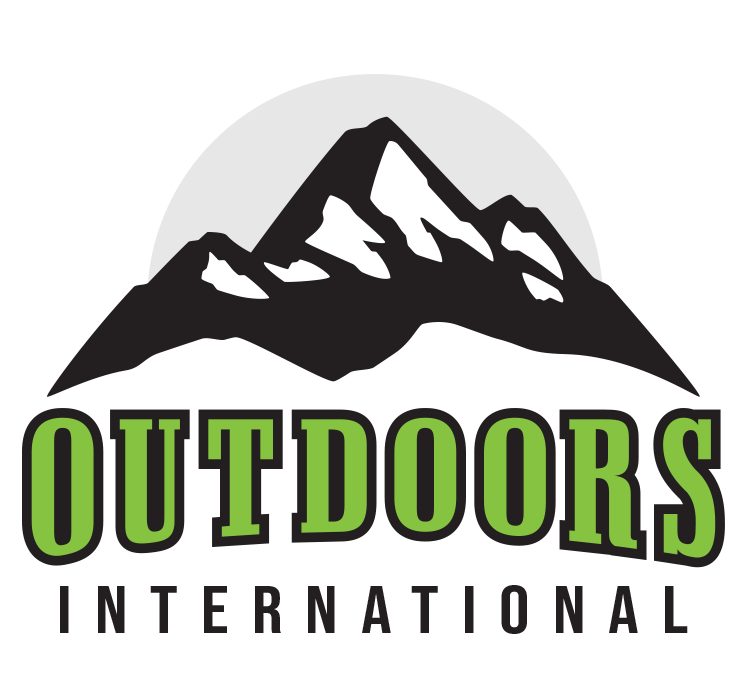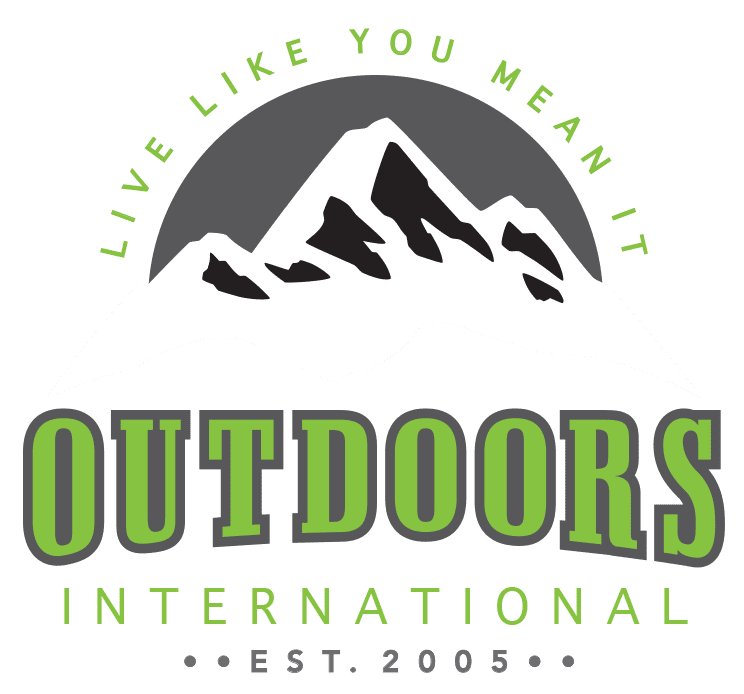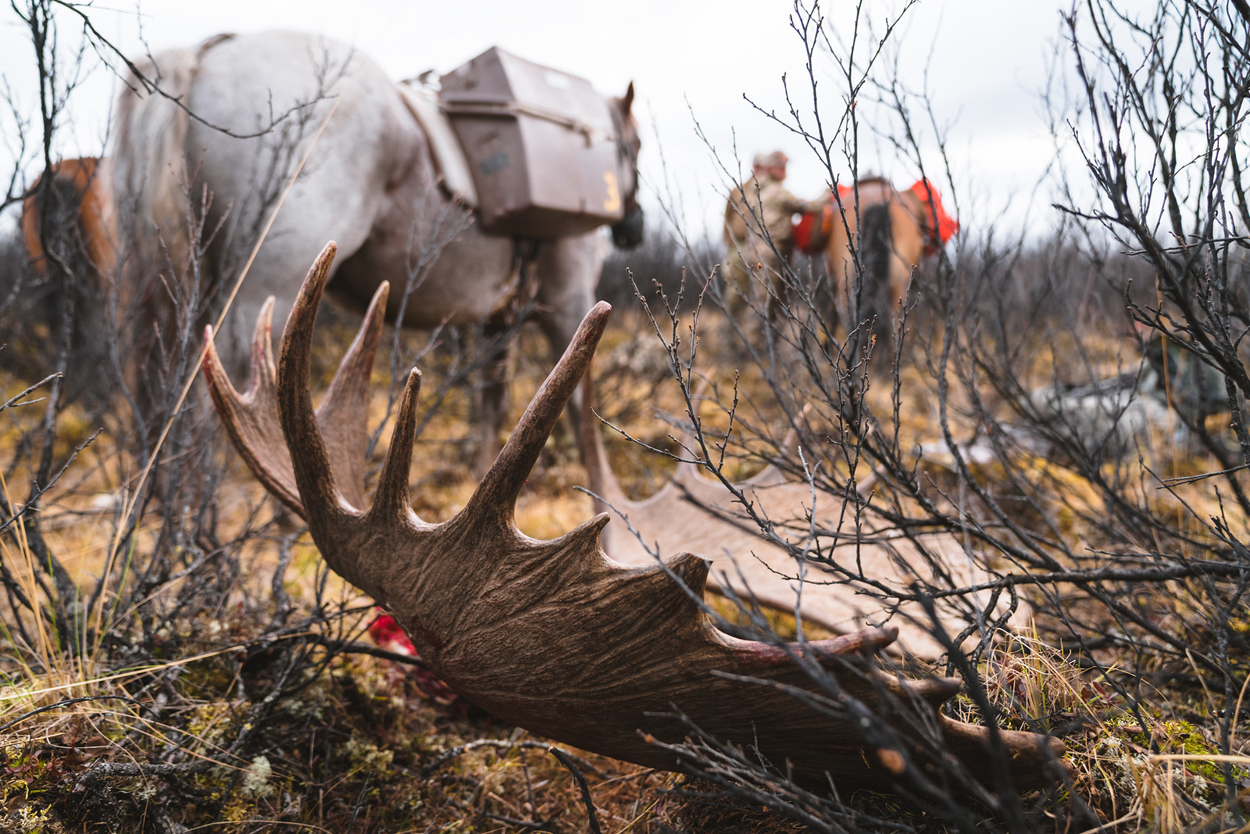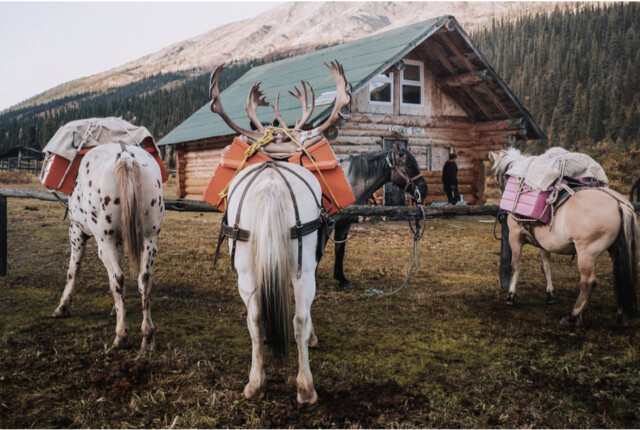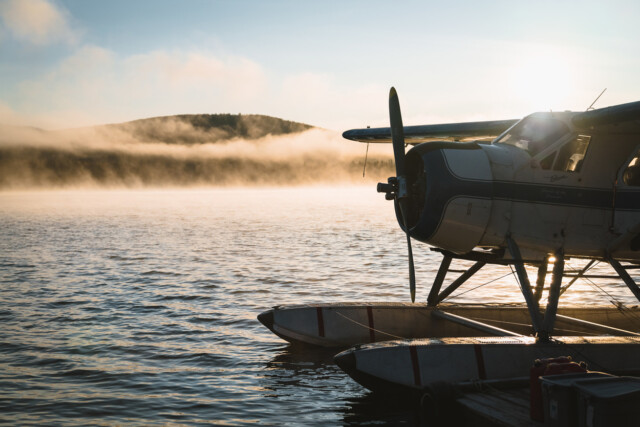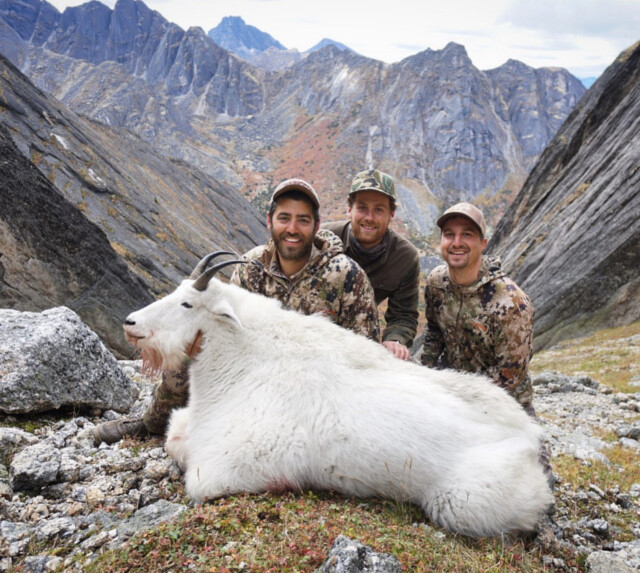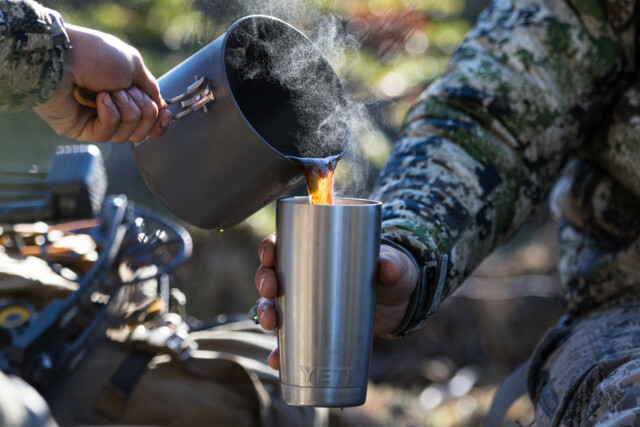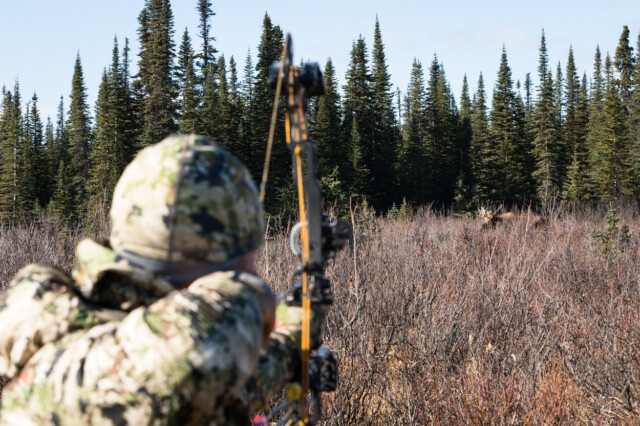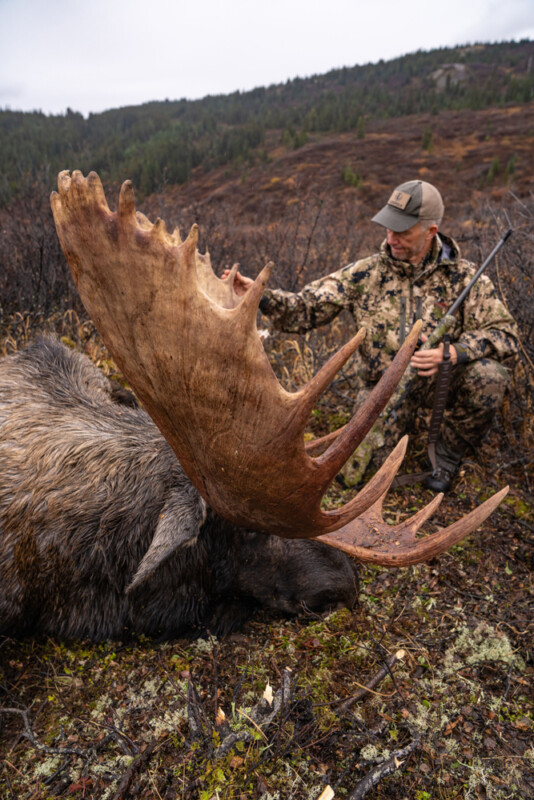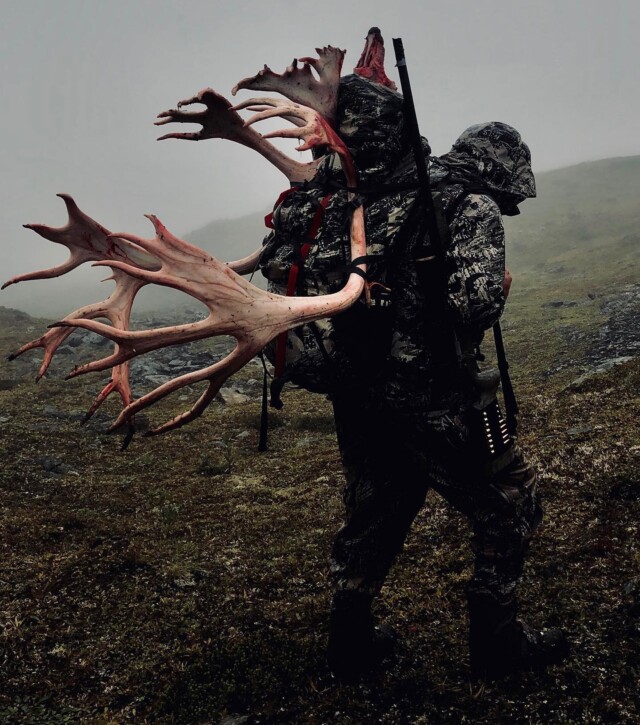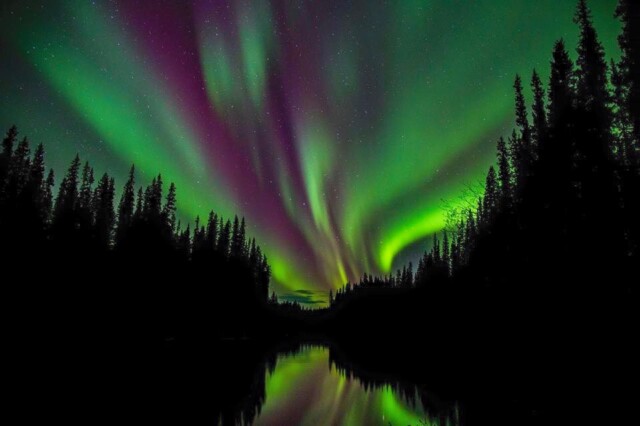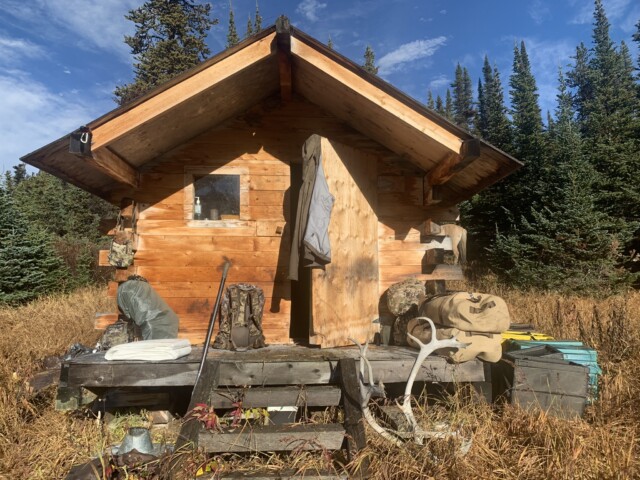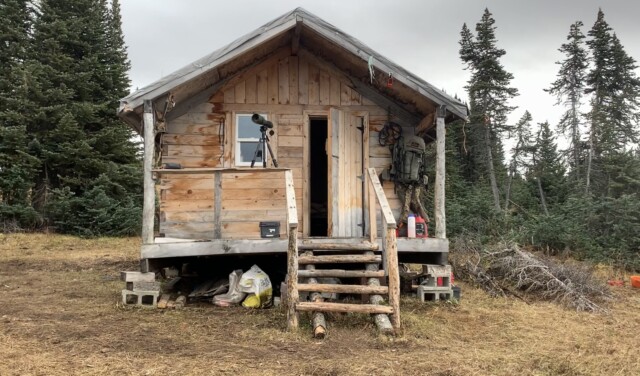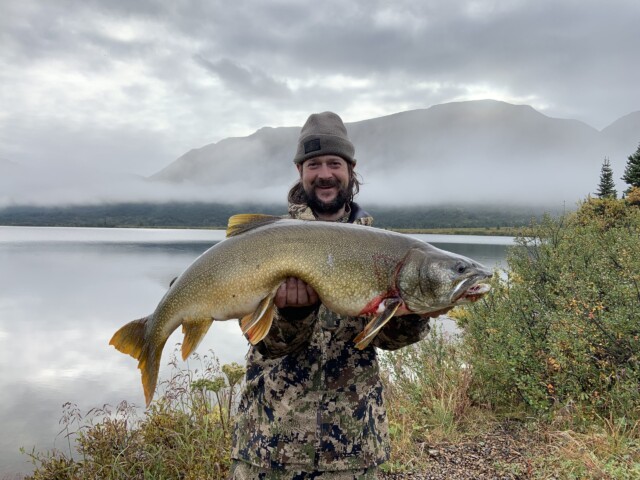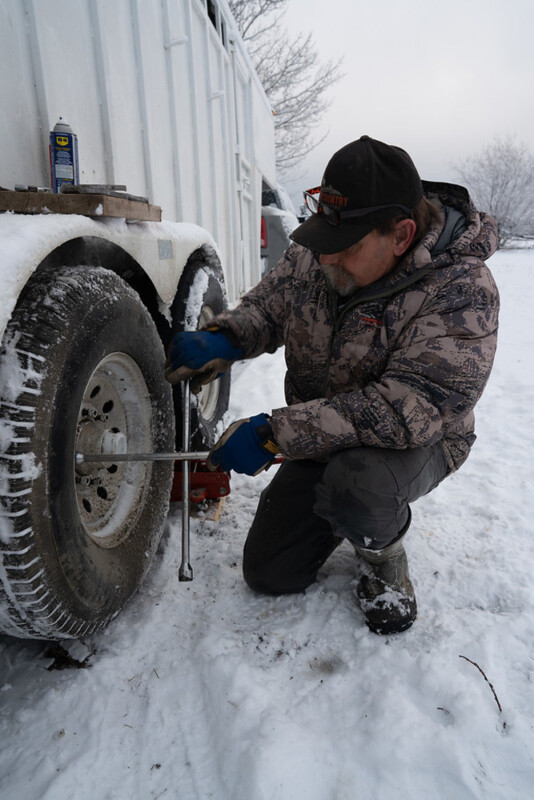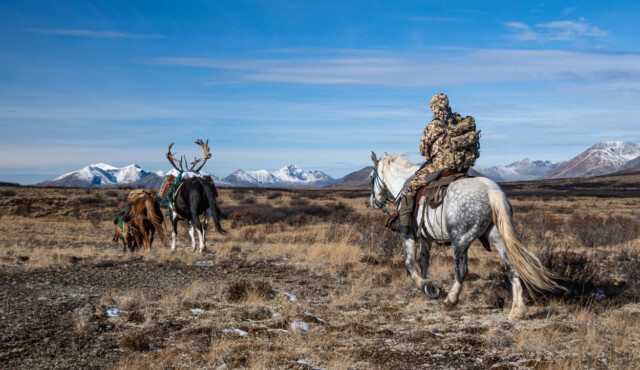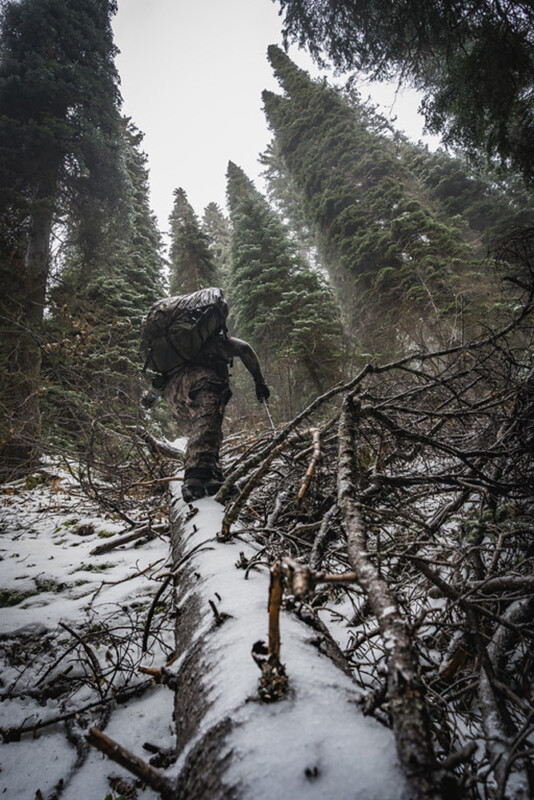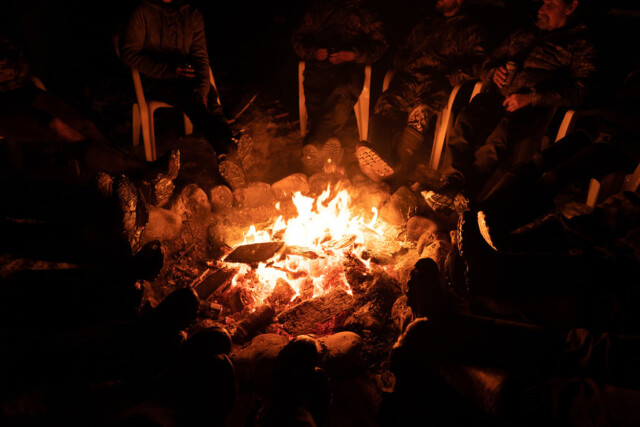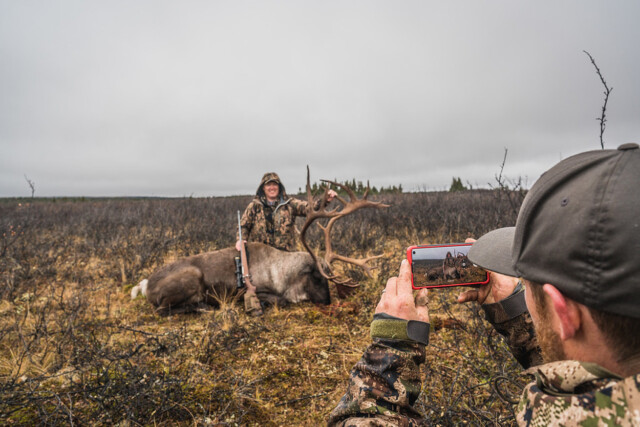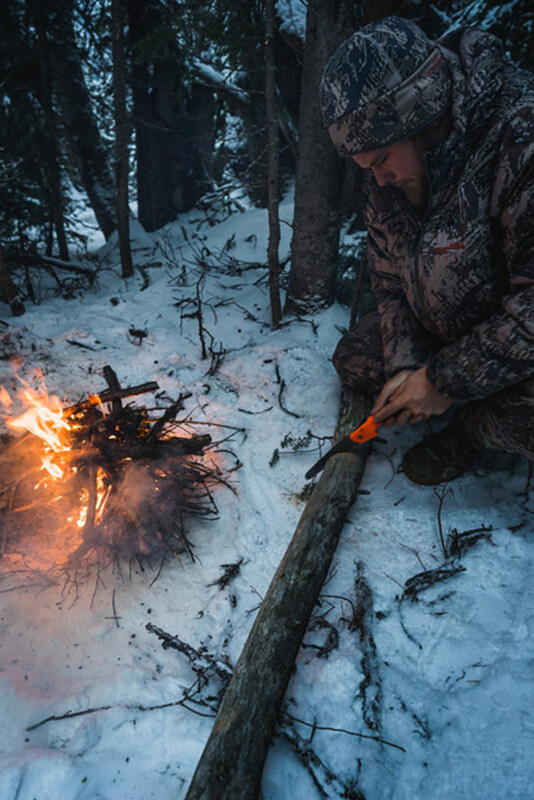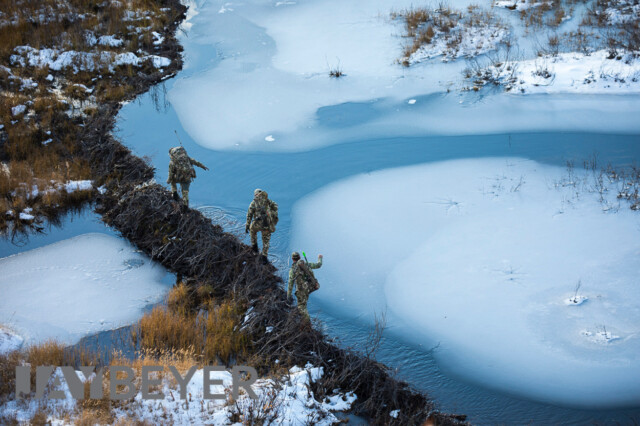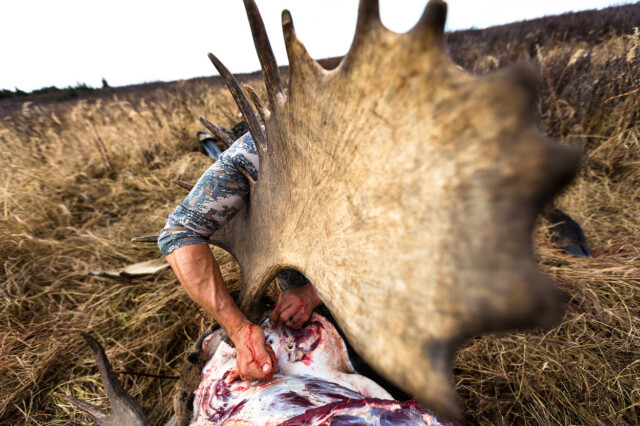MOOSE HUNTING
The Yukon, and this area in particular is well known to have Monster Moose!
This premier outfitter has both the population and great genetics for the some of the world’s biggest Yukon Moose, with several moose taken over 70” and 65” is not uncommon. It’s no wonder that this is our go-to, first choice for “the place” to fulfill your dream moose hunt.
This area of the Yukon is truly unbelievable. It easily competes with any area for quality on average, and your chances at a record book moose are as likely here than any other region. Don’t be trigger happy early on, because you don’t need to!
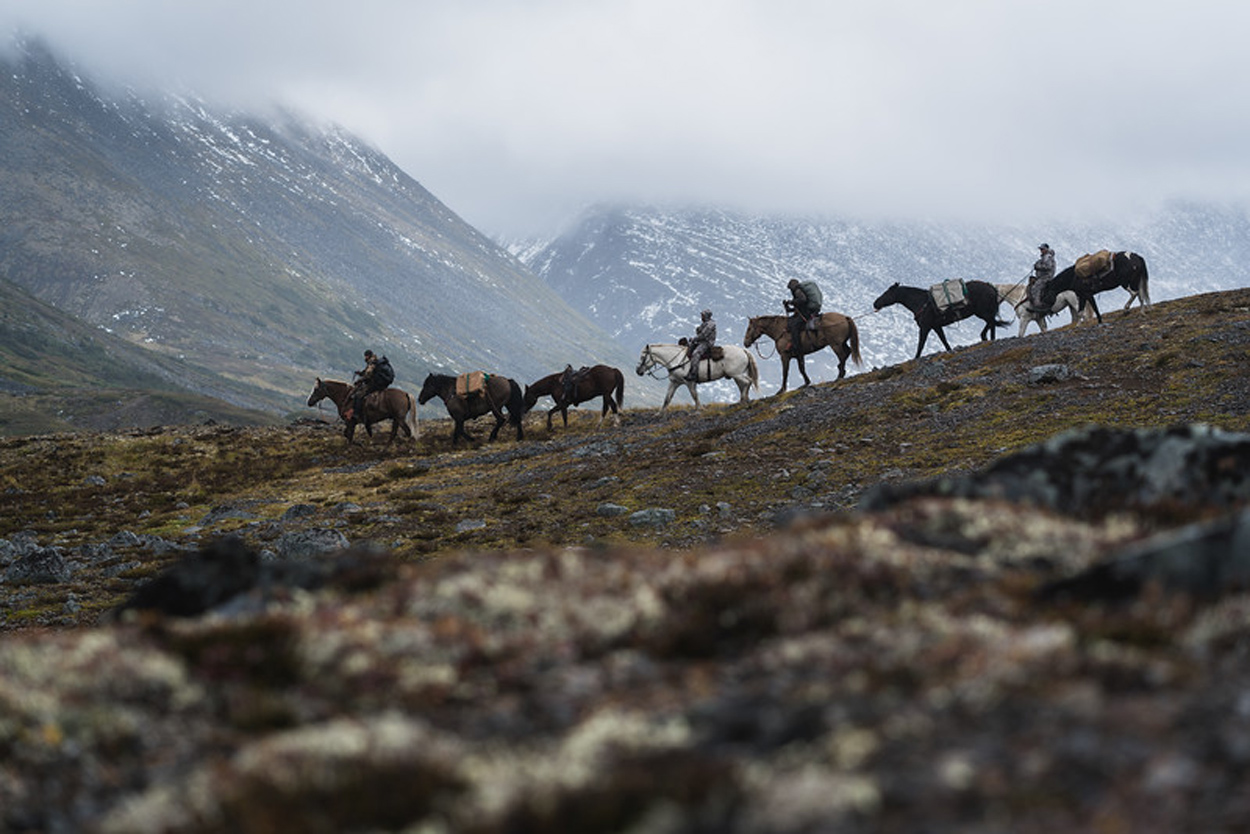
HORSEBACK HUNTS
If you choose a horseback hunt, you and your guide will use the horses to get up high and glass for bulls, or cover ground while hunting the edges of the timber and willow draws.
On the horseback hunt, you should have a good chance to add on a mountain caribou, grizzly bear and/or a mountain goat. Without a doubt, this one of the Yukon best Moose/Caribou combination hunts available!
*NOTE: Combo hunts are horseback only.
Riding horses is much easier than backpacking, but it uses muscles you probably don’t even know you have. If possible, go to a horse stable and take a few riding lessons if you haven’t ridden before. If you’ve ridden before, put some time in on a horse, starting several weeks before your trip to avoid excessive soreness. Walking and leading your horse, will keep your muscles more limber, and will be easier on the horse. We have good horses but in bad areas it’s best to get off and walk them.
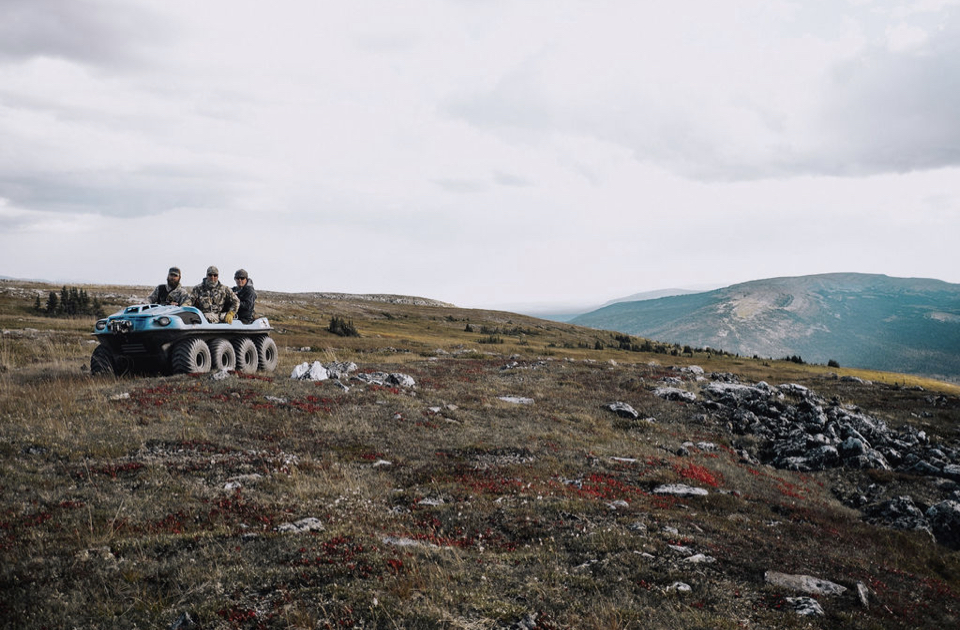
ARGO/ATV HUNTS
Argo hunts are similar to horseback hunts, just without the horse! Access to vast alpine valleys and unlimited terrain can make for the hunt of a lifetime for those who want the mobility without the sore knees!
BACKPACK HUNTS
These types of hunts require special preparation in order for it to be comfortable & enjoyable. We suggest taking the pack you’ll be using on the hunt and hike with it several times/week. Start with 20 or 30 pounds if you haven’t backpacked before and work your way up, over a 1-2 month period to 45-65 pounds.
If you’ve backpacked before you should know the routine. For your backpack hunt, you will need to be in good enough shape to hike with a medium weight pack for up to 8 hours/day. With many breaks of course.
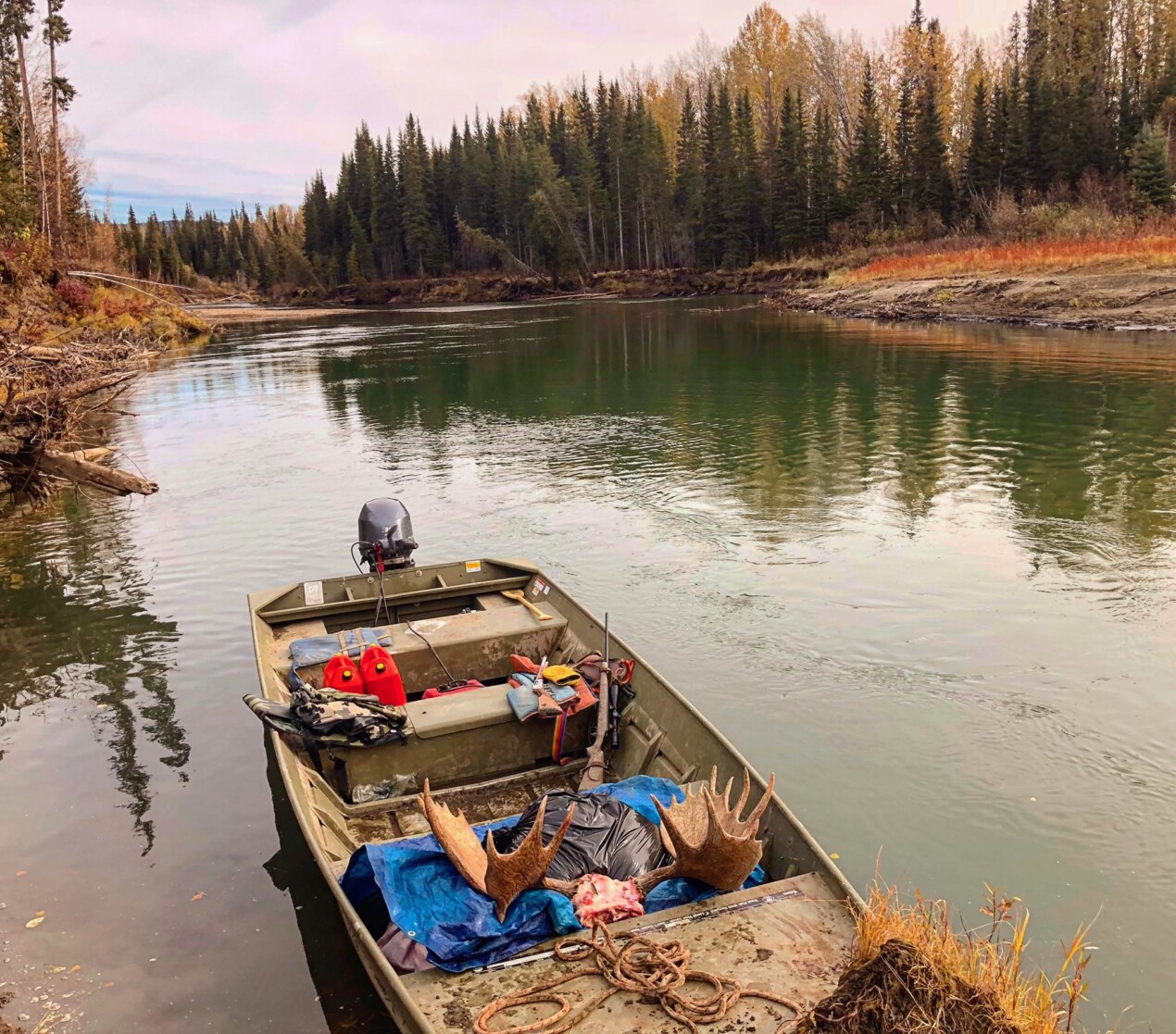
BOAT HUNTS
On a boat hunt you will travel the lake and/or rivers systems while calling for moose; you may also take short hikes up to vantage points and meadows. The success rate and trophy size on these hunts is the same as our horseback or Argo hunts, but the hunt will can be less physically demanding.
Generally these hunts are booked as two hunters per camp guide making them a great choice for those looking to hunt with a friend or family member. One hunter per guide is the Yukon Law so for those wishing to hunt alone on not share his time that’s fine also.
Because of the density of moose in our lakes region this is a perfect place for our dedicated archery clients or the older guys who may just like to have a relaxing break from the busy world. Don’t make the mistake to think that boat hunts are only for old guys though. Adventurous guides and an vast area to hunt can add up to one of the most epic hunts for the fit hunter as well.
If Big Moose is your goal and horses aren’t your thing, this hunt will be the right choice. Year after year these boat hunts provide huge bulls and high success for our hunters.
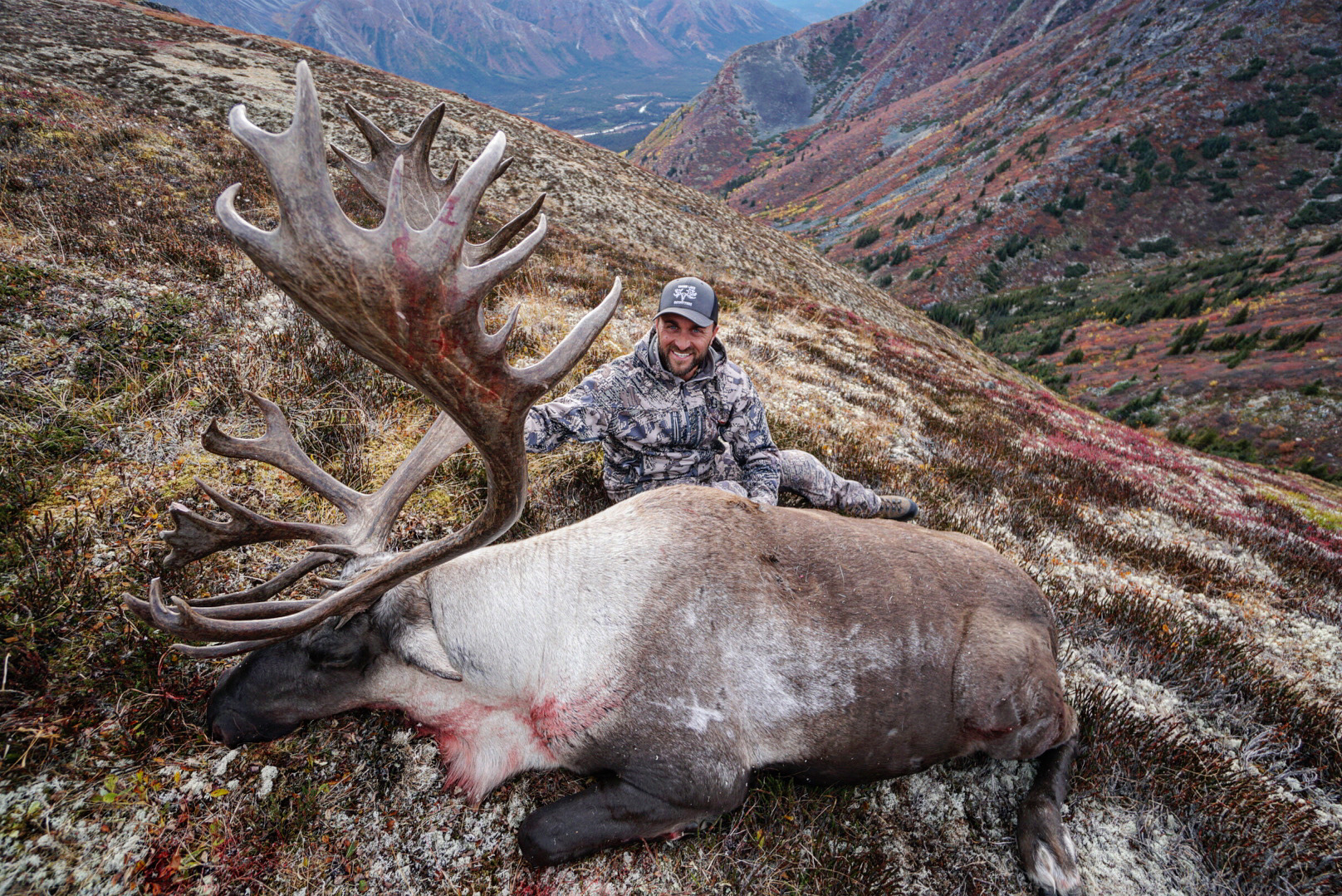
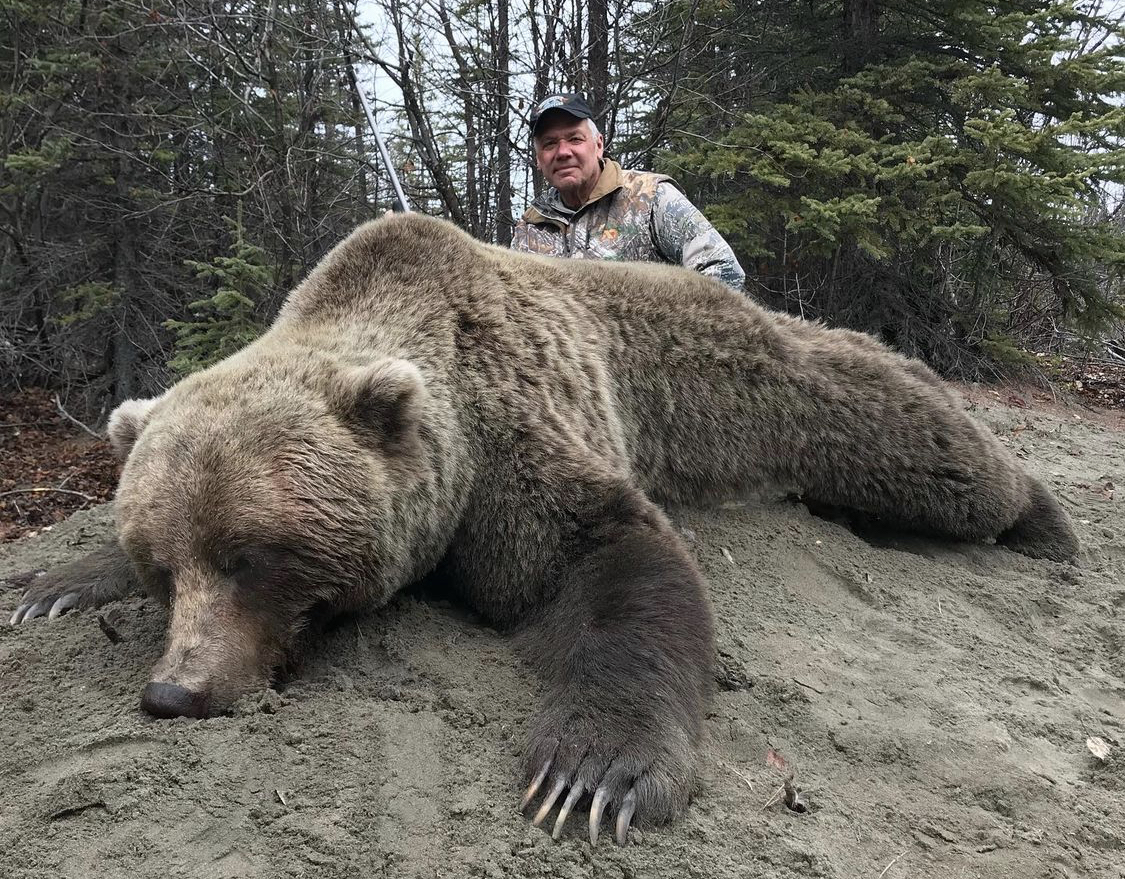
GRIZZLY hunts
High success on big boars squaring from 7 to 9 feet.
Mountain Grizzly in this area have almost no hunting pressure and are typically hunted as a combination hunt during fall hunts. However, they can also be hunted as single species in both the Fall or Spring.
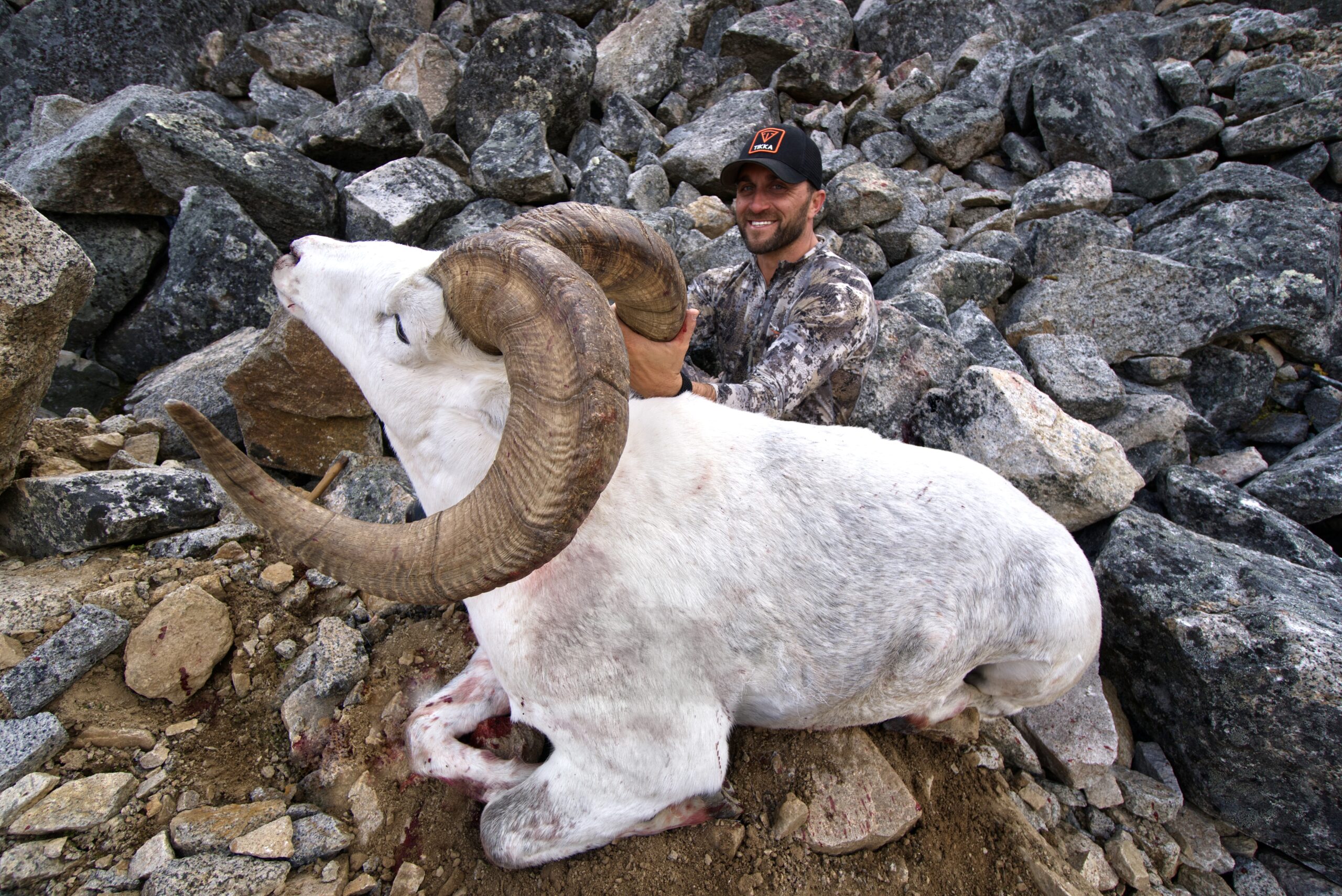
Dall sheep hunts
These Yukon Dall sheep hunts are excellent, as are the guides.
Sheep hunts are 10-day, Argo/Backpack and Horseback hunts. You’ll typically have two seasoned sheep guides with you to make it a success. We generally are booked out a couple years, so please inquire early to secure a sheep hunt with us.
TRAVEL INFORMATION
FLY TO WHITEHORSE, YUKON AIRPORT
We recommend using a professional travel agency to book your flights, unless you are quite experienced with the process. If you have questions about airline travel within the US, call TSA at (866) 289-9673 or visit www.TSATravelTip.us.
On arrival in Whitehorse you will rent a car (which can be shared with other hunters on the same hunt date) and travel 5 hours south to the main camp near Watson Lake, Yukon. There are options to Charter a wheeled plane directly to basecamp from Whitehorse saving you time, but with an added expense.
From basecamp most hunters will then take a charter bushplane out to hunt camp, or sometimes use trucks and four wheelers to access the area they will be hunting. It all depends on the hunt style and location of your hunt.
The outfitter uses a 3rd party charter company. Weather is the main issue and can lead to delays in getting hunters in and out of the field. This is out of their control and a regular challenge no matter where you hunt in the north. We expect patience if this becomes an issue on your hunt. Everyone wants to get you out and we will do our best.
TIPS FOR BOOKING YOUR FLIGHTS
- In the event the airlines lose your luggage, arriving early will give you another day to get your gear to the destination.
- Book your flight departing Whitehorse for the day after your hunt is completed, or even one day later. Late in the day as possible is best.
- Allow several hours between when you land in Vancouver, BC and your connecting flight to Whitehorse, so that you have time to clear customs. This is where you’ll present your Firearms Declaration Form.
DRIVING
If you are driving please let the outfitter know in advance, because you won’t need to go all the way to Whitehorse. It’s much easier to take home moose and caribou meat and horns in your vehicle then by plane.
Once you book your hunt with, the outfitter will provide more detailed information on travelling to the area, maps, and requirements for firearms.
Request a Trip Insurance quote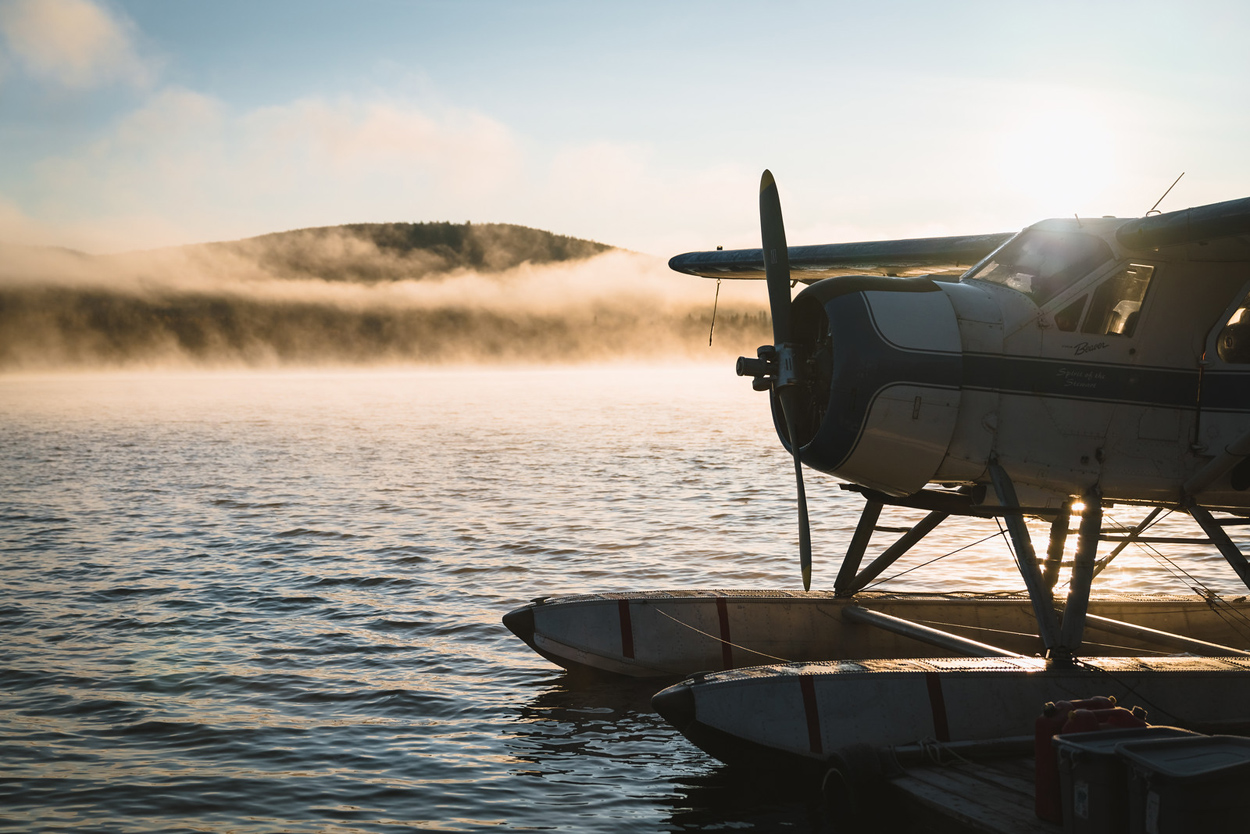
REQUIRED FORMS & DOCUMENTATION
Custom Declaration Form 4457 must be completed with U.S customs BEFORE you leave. It will prove you left with the valuables listed and you will need to show them on return to USA. It’s good for life, and it’s also good to put anything with a serial number on it as well. Ie. Spotting scope & binoculars.
Canadian Customs will also require you to fill out a Non-Resident Firearm Declaration Form. You should have this pre-filled to save time. This is all a very simple process and not stressful at all. Just be prepared with the correct documents and there won’t be any issues. (DO NOT SIGN IT BEFORE THE CUSTOMS AGENT ASKS)
IMPORTANT: When flying to Canada, obtain a Passport. A passport is valid for 10 years and can be obtained online, www.tds.com or by going to your local courthouse or police department. You’ll also need several passport photos (these can be taken at a photo or print shop). A passport is required for all travel to/from Canada and the U.S.
TAKING YOUR TROPHIES HOME
Due to high fuel prices, many airlines are charging a fee for all checked baggage, plus a fee for overweight baggage. If you wish to take some meat and your antlers/cape home the commercial carrier will charge extensively for it.
Most hunters will leave their trophies with the outfitter and have the taxidermist/broker ship it to them at the end of the season. He cleans everything (beetles the sculls) and take extremely good care of skins and the entire process to your destination of choice. (your home or your taxidermist). This will cost, but it will actually save you money in the long run, and the hassle of all the luggage and fees.
We do recommend taking some meat with you. You can purchase a cooler from the local store and most of the hotels have freezers to use, so it is frozen for your trip home. This is our recommendation for all hunters. Take some meat (50 lbs) and let the outfitter take care of the rest.
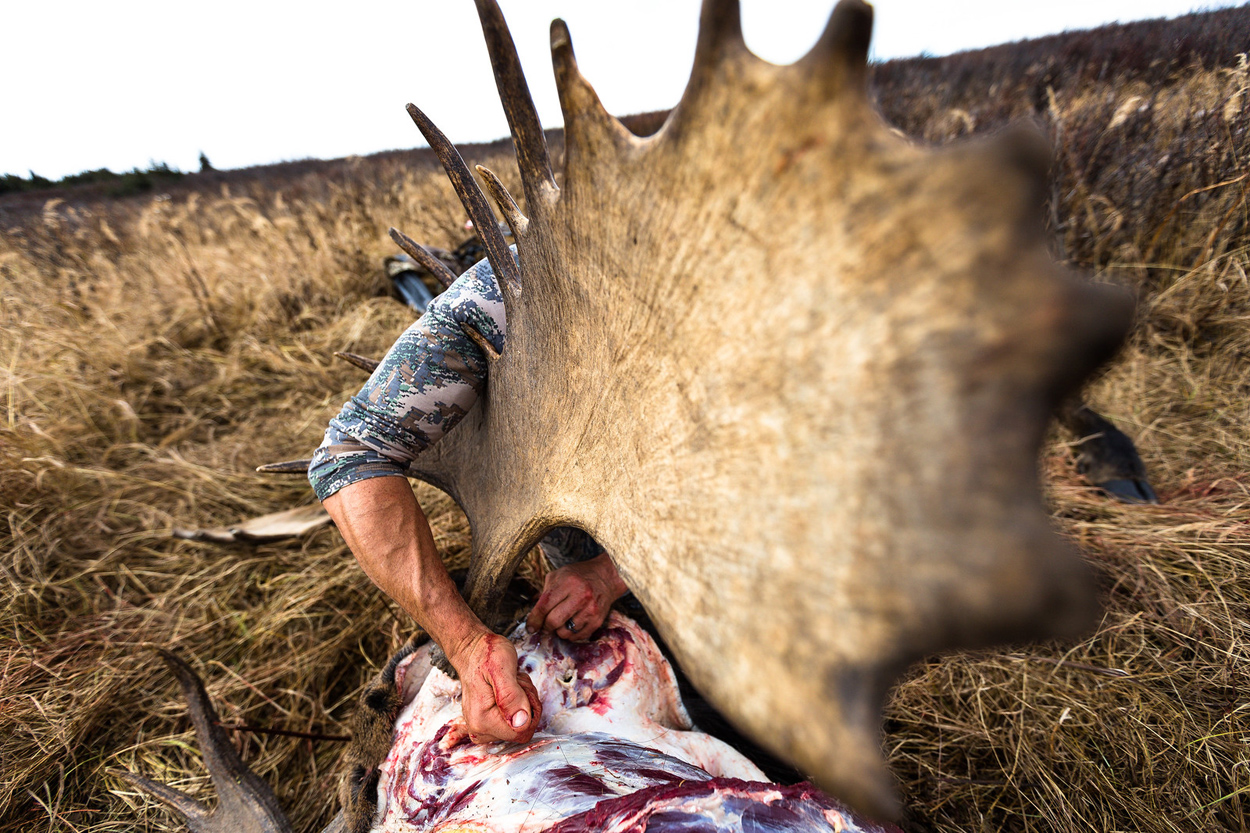
Pre-Trip Preparation
TAGS AND LICENSE
You will receive your hunting licenses and tags and some custom cape and horn tags- make sure you keep these with you at all times and don’t loose them. (Tags and License will need to be signed before valid. Don’t forget!)
If Harvest fees are required you will need to pay these BEFORE you go out to camp. NO PERSONAL CHECKS ARE ACCEPTED UNDER ANY CIRCUMSTANCES (Certified Bank, or Cash only) In the past we have had issue with this and trusting some (what we thought) were solid guys. Sorry for the inconvenience. These fees will be kept in a safe place and returned at the completion of the hunt if that species is not taken.
Physical preparation
The success of your hunt may very well depend on your physical & mental preparation and ability. Except for some riverboat / lake and some horseback moose hunts, there are no “easy” or “canned” hunts in this part of Northern British Columbia. Hunting here is the Real McCoy.You only live once and you might as well take care of the one body you have. You’ve likely heard this before, but because it is so important, We’ll repeat it again. You should be doing some type of physical exercise (aerobic and anaerobic) at least 3-4 times/week and more is better. If you really want to burn calories, exercise first thing in the morning and if time allows, once or twice a week, add a workout in the afternoon. Remember to eat healthy and balanced meals. With proper exercise and eating habits, you’ll be healthier, stronger, happier and a better hunter.
The following are things are suggested depending on you physical ability and age. In order to get aerobic exercise you need to do these for at least 20 minutes straight, each time. We recommend 30-60 minutes/time.
ACTIVITES:
- Running or brisk walking – at least 2-3 miles
- Biking (mountain or road bike)
- Organized sports – (Basketball, Hockey, Soccer or Tennis)
- Exercise machines (Stairmaster, Nordic Track, Treadmill, Bike)
- Circuit training w/free weights or universal system
- Swimming
- Aerobic type classes (Tai Bo, step aerobics, etc.) – don’t laugh as you be surprised as to how well this improves agility and coordination and the scenery is usually great
Make sure you hike around town or the local hills with the boots and pack you’ll be wearing on the hunt because if you have sore feet, everything else is secondary.
SUGGESTED GEAR LIST
Be sure to talk to the outfitter prior to your hunt about what specifically to bring, but here are the essentials for this hunt:
- FOOTWEAR – Your boots are the most important pieces of equipment you will bring. We prefer all leather for most mountain hunting situations. The Kenetrek Mountain Extreme 400 is the best we have used in any situation PERIOD! After you’ve spent all that money and time finding the right set of boots, don’t cut corners on cheap socks.
- CLOTHING – In general, stick with synthetics (Fleece, Schoeller, Saddlecloth, nylon/poly blends etc.) or wool. For backpacking, synthetics tend to be lighter and quicker to dry. Smart Wool or Merino is hard to beat.
- UNDERWEAR – Layering with multiple items is better than wearing just one or two heavy layers. Synthetics are the way to go for comfort, moisture wicking and warmth. In August, bring lighter weight material; in mid-September and later, you should bring heavier weight underwear.
- PACKS – You will use an internal or external frame pack. External frames are cheaper and will work. Internal frames are more comfortable and quieter for hunting (our preference). You will need at least a 4500 cubic inch external or a 5000-7000 cubic inch internal. If you bring an external pack, get one with a built in sleeping bag compartment. In that case, you will want one that holds at least 5,000-6,000 cubic inches also. Put your backpack (if external type) in a large duffel for the commercial flight as it will be less likely to get damaged by the airlines.
- SLEEPING – You will be sleeping in your sleeping bag every night, a mummy bag is the warmest and lightest and what we recommend. A thermarest, is necessary (NEO AIR). A full length is the most comfortable, but a ¾ length will also work. For sleeping at night, you want a headband or stocking cap to sleep in. Sleeping in a set of long underwear will keep your bag cleaner and it will be easier to face the morning cold. For a pillow, We generally put my Down jacket in my stuff sack or a pillowcase.
- GEAR BAG – Your gear should weigh 45 – 60 -70lbs max including food, water, tent and weapon. Try not to pack to much extras, you will have a animal to help pack out!
In the Field
Lodging and accommodations
Accommodation can be provided at the main camp prior to and after your hunt when needed. However, hotels in town may be required the night before and after the hunt. On your contract you will have an arrival date and departure date. We ask you please follow this schedule as your outfitter and guides are very busy and space is limited.
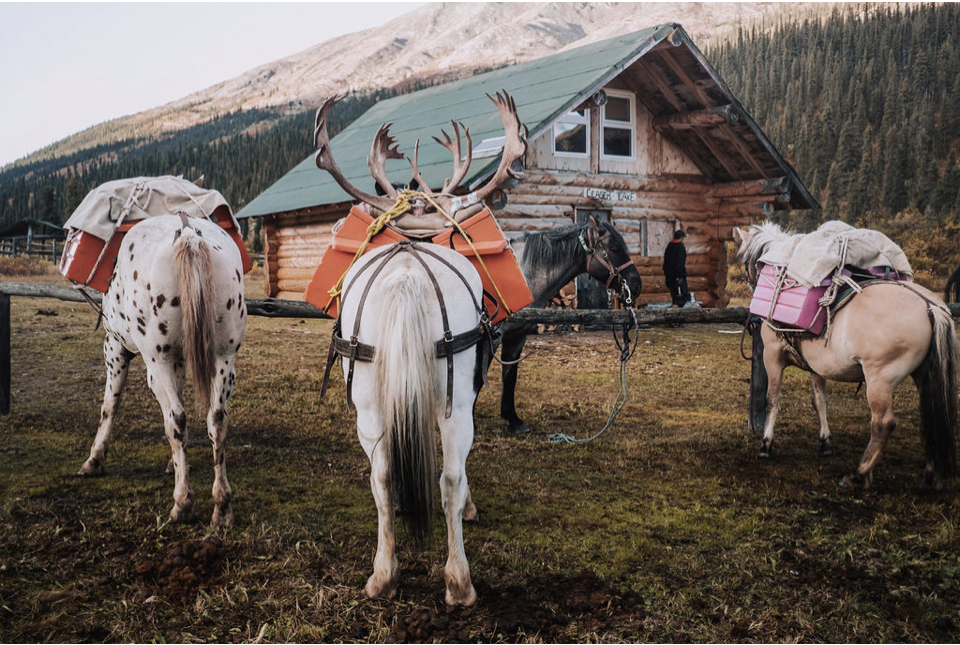
Each camp in our concession is set up differently with some rustic but very comfortable cabins with wood stoves, beds or cots & propane lights.
These camps all serve their purpose for a hot meal and place to lay your head after a rewarding day in the field, they have great camps, however some of the camps are standard to remote hunting camps of the North. Each camp is set up with propane cooking, cooking utensils and cutlery and a readily accessible water source.
Wall tent camps are rare and generally simpler than the cabin camps and used to put you in the best country to hunt your target animal.
On occasion you may need to “spike out” in smaller tents if you’re after a specific animal. However if this is necessary, the guide will discuss with you and decide on a game plan.
Your camp location will be decided based on ours and your guides educated opinion to give you the best opportunity during your hunt.
This will be discussed on arrival to camp. If you have special requests i.e. only staying in a cabin or near a power source etc, please discuss this with us prior to booking the hunt.
typical daily schedule
The daily hunt plan will be made up by your guide. His experience and skill will take you in search of the species of choice. With that said please talk to you guide and discuss plans and your ideas. If you need a rest day or want to go deeper or stay out longer, please talk to him. Without communication they don’t know what you need or like. This is your adventure and they will do what they think is needed but sometimes your wants are different then others so you need to communicate your opinions. It’s VERY IMPORTANT.
Shooting
Aside from helping where you can… Your job is to shoot well when the time comes. This is the one aspect of the hunt your guide can’t do for you. Only shoot when you are comfortable and know you can make a clean quick kill.
It is ONLY your fault if you pull the trigger and miss or wound in any circumstance. Your guide will do their best to get you ready and present a shot. Be ready.
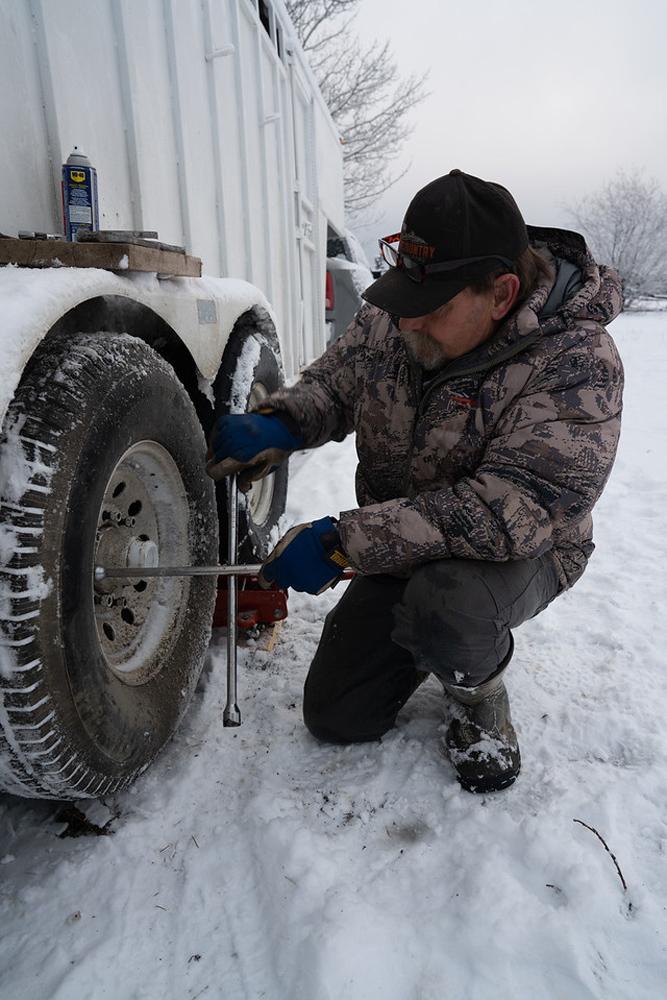
expect challenges
During the hunt you will encounter a variety of challenging situations, this is the nature of the northern wilderness and having a positive and strong mindset will determine how you handle these challenges.
The guides will do their best to communicate with you throughout the hunt and your overall success will be determined on your ability to work with your guide to get the job done.
Gallery
Booking Information
Please note that reservations are not considered finalized until agreed upon deposit is received. This ensures agreed upon dates and current pricing. Quality outfitters are in high demand so let us know right away, as some trips do book years in advance.
